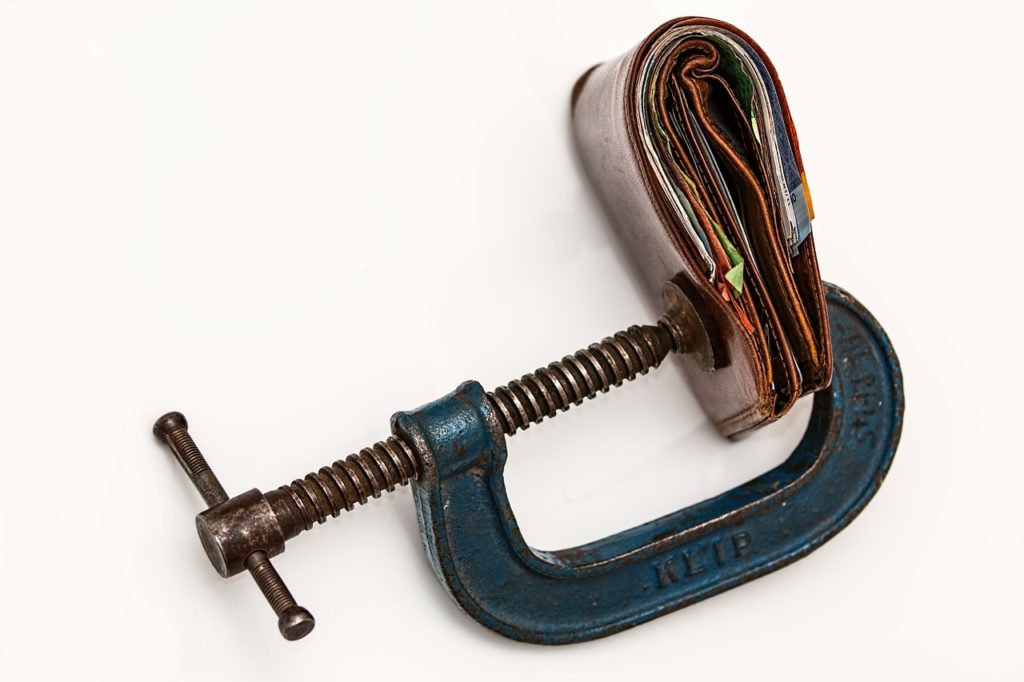Low on cash and don’t have time for a second job? Need to build up that savings account? Or do you just want to go out of town for the weekend but don’t have the extra funds to do so? Hey, join the club! The financial struggle is real – over 62% of Britons are struggling to make ends meet. I personally was living payslip to payslip a few short months ago but have since taken ownership of my finances and turned that around. And no, I didn’t get a second job. There’s a better way!
I put together the four simple steps that helped me rid the financial struggle, and start saving – none of which required me to get a second job, or even leave my house. Try them now!
Step #1 – Open a new bank account and make an initial deposit
Why does it have to be a new account? Because having a separate account will allow you to see your positive progress and will motivate you to keep going. Think about when you are working to lose weight; you step on the scale for the first time and see that you’ve lost 5 pounds. You get a rush of motivation to keep doing what you are doing. The same thing applies to your finances.
So open a new savings account, checking account, etc. whatever you prefer. Just make sure it’s one that is harder to withdraw from, and then make your initial deposit. What if you don’t have much to put in there? That’s okay! The amount of the initial deposit does not matter, but getting started does. This amount will grow over time as we go through the next three steps. Trust me!
Step #2 – Create an additional revenue stream of at least £35 each month
Ideally, this new income would not interrupt your daily life at all, so you don’t have to make that sacrifice. How I did it was with InboxPounds.
Try InboxPounds – £1 Bonus, and then ~£8 for every 30 minutes of video watching, surveys, etc.
What is InboxPounds? InboxPounds is a site that pays you in cash to answer anonymous surveys and watch videos. This is my favourite survey site because they actually pay you in cash!
They’ve paid out roughly £40,000,000 to date worldwide, so they know what they’re doing. And, the surveys are actually interesting, and you can do them while binge watching your favourite TV show.
Step #3 — Examine your biggest bills
This part will differ for everyone, but I’ll share a couple of my problem spots to help get you started.
1. Credit Card
I like, so many of us, have a lot of credit card debt. When I finally made a payment, I ended up using it again! It was caught up in the never ending cycle.
My solution was to find a loan with a lower interest rate and use that money to pay off all of my credit cards. This allowed me to consolidate all of my debt and pay a 3.79% interest rate instead of 17.89%. The savings are unreal!
Result: I cut my interest payment by £90 per month in just 5 minutes
2. Car insurance
I know this is the last thing you want to look for, but did you know that car insurance companies make most of their money off of people that do not shop around, but continue to renew their existing policy? Think about it – Do you have a clean driving record? Has your premium increased in the last three years? They know it’s a hassle to leave, so they charge whatever premium they want! 10 minutes saved me £552 per year, how much can you save?
Result: I saved £46 per month in just 10 minutes
3. Coffee
Have you thought about how many times you stop for a cup of coffee each week? I had a daily habit of stopping at the coffee shop on my way to work. It got so bad, we eventually made it to a first name basis. That’s when I decided to start making my coffee at home. Yes, learning how to steam your own milk is challenging at first, but i’ve gotten really good at it and i’ve turned it into an art. Maybe you don’t drink coffee every day, but do you have a daily habit that you can rethink?
Result: I saved £112 per month
4. Final saving tip: Always ask them to waive the fee.
You would be shocked at how easy it is to get fees waived. No matter what it is: late fee, parking ticket, utility payment, etc. I had a £50 late fee tacked to my rent when I was paying a day late, but nicely asking them to waive, worked! Remember: the answer is always no unless you ask (nicely!).
Once you’ve analyzed your bills and find out exactly how much you are saving from these new changes, set up an automatic transfer for that amount to your new savings account to make sure this new money actually gets put away.
Step #4 – Keep it up…
If you’ve implemented all of these changes and didn’t spend the extra money in your pocket, you should have saved and earned a total of at least £1,000. £1,000 is great, but what’s better? £5,000. You’re almost there, just keep up the good work!
Conclusion:
The quicker you start on these changes, the more money you’ll save this year. I don’t know about you, but stressing about finances was taking a toll on me. I’m not rich and I’m not saying you will be from just these changes, but not living payslip to payslip has relieved my stress levels completely and changed my life… and I know it will change yours. Take the first step to get started today. You won’t regret it!











